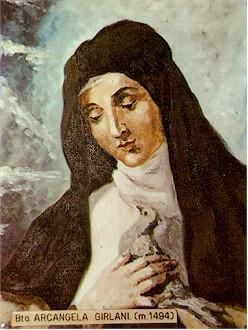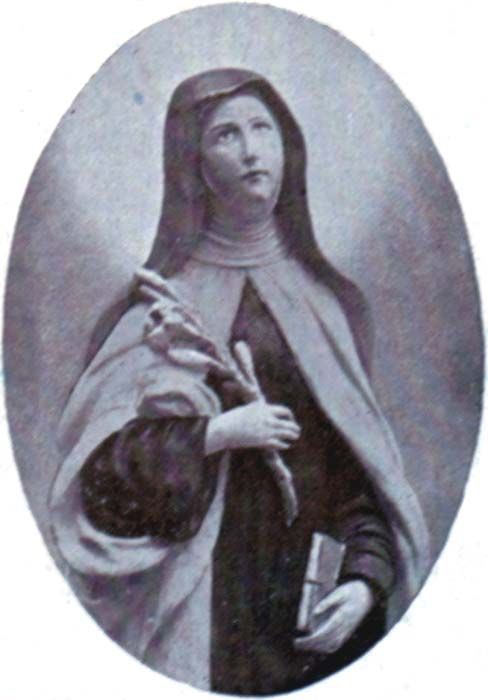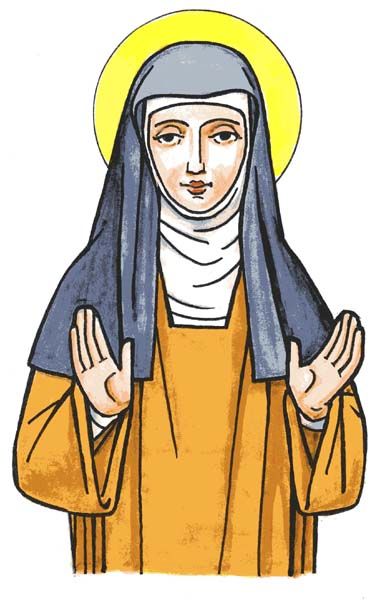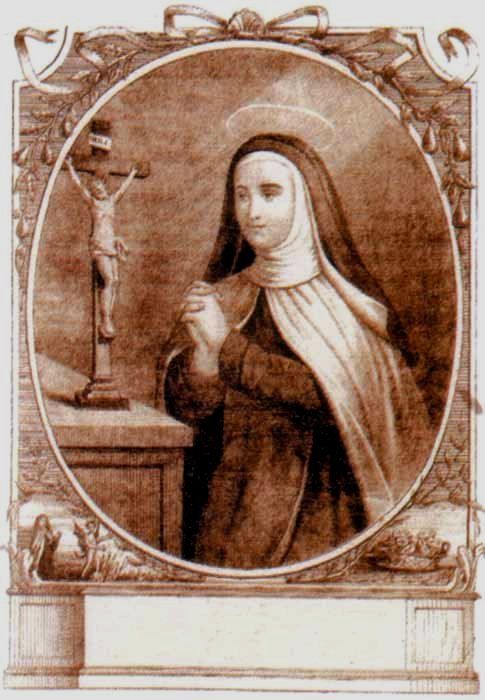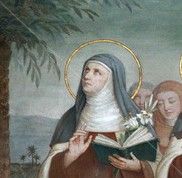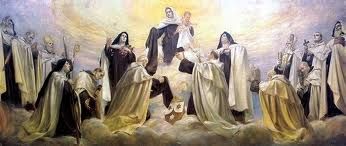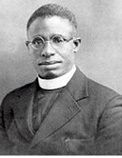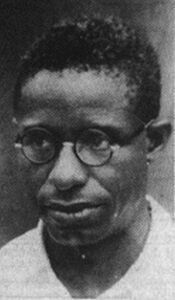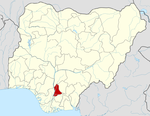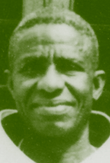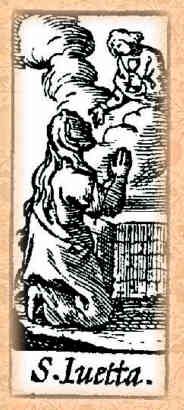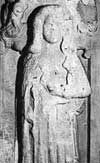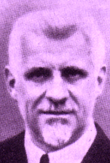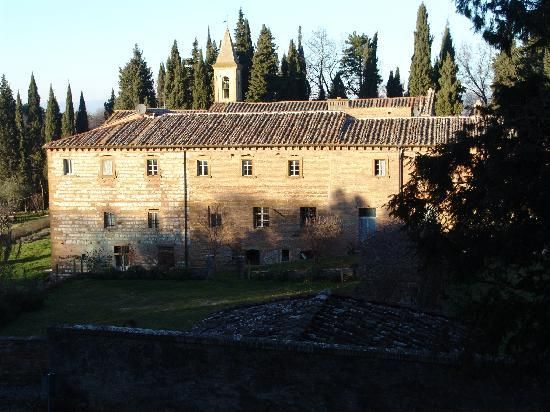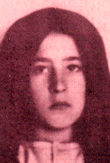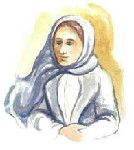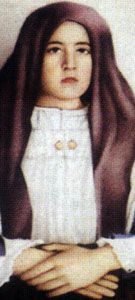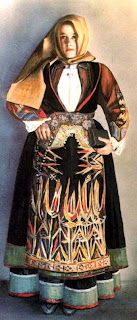Born Eleanor Girlani in the small Italian town of Trino (Piedmont), Eleanor demonstrated great piety and holiness as a child. Despite her family’s noble heritage, her only ambition in life was to become a Benedictine sister, and together with some friends and relatives, she prepared to travel to the monastery of Rocca delle Donne, who had agreed to accept and raise her as a member of the Order. However, this was not to occur. Upon mounting her horse to travel, the animal refused to carry her to the monastery. As this particular horse was one of gentle and obedient spirit, the animal’s refusal to move was interpreted as a sign from the Lord, and Eleanor returned home. Despairing, she prayed for guidance and contented herself in her own daily practices of contemplation, penance, and service to others.
Eleanor soon encountered a Carmelite monk, who introduced her to the sisters of the Carmelite Order. Understanding this as divine intervention, Eleanor sought admission, and was accepted into the Order on her seventeenth birthday. She lived and served in the convent of Maria Maddalena in Parma, along with her sisters Mary and Scholastica.
Eleanor received the veil as a Carmelite sister at age eighteen, taking the name Archangela as her own. She was made Prioress of the abbey, given her nobility (as was the custom of the time), and became a model of Christian virtue to her sisters. Especially devoted to the Holy Trinity, Archangela spent hours in the chapel praying and contemplating the divinity of the Lord.
Sister Archangela soon was requested to found an additional abbey in Mantua, which was named Santa Maria del Paradiso (The Convent of Mary in Paradise). There, under her direction, sisters of the Order lived as if already absorbed into heaven. The monastery developed a reputation for great holiness, and received many new sisters. As prioress, Archangela experienced great ecstasies, some lasting well over 24 hours, and on more than on occasion was discovered by her sisters to be levitating above the ground while contemplating the Holy Trinity. She further performed many miracles.
Only three years after founding the monastery at Mantua, Blessed Archangela fell gravely ill. Strengthened with the Sacraments and with her eyes fixed on an image of the Crucified Christ, she repeated her frequently uttered words; “Jesus, my Love" and peacefully died at the young age of thirty-four. Based upon her request, was buried in the simplicity of a common grave at the monastery. Three years later, when the tomb was re-opened to commit another sister to the earth, her remains were found incorrupt and exuding the fragrance of holiness. Great miracles were reported, and her relics were enclosed in a crystal tomb, and placed above the alter at the monastery.
Nearly 300 years after her death, the monastery in Mantua was closed, and Archangela’s relics were translated to Trino, where she had been born. Her relics, still venerated today, were placed in the church of Saint Lorenzo. There, her body rests, wearing the habit of the barefoot Carmelite, in a casket of crystal.
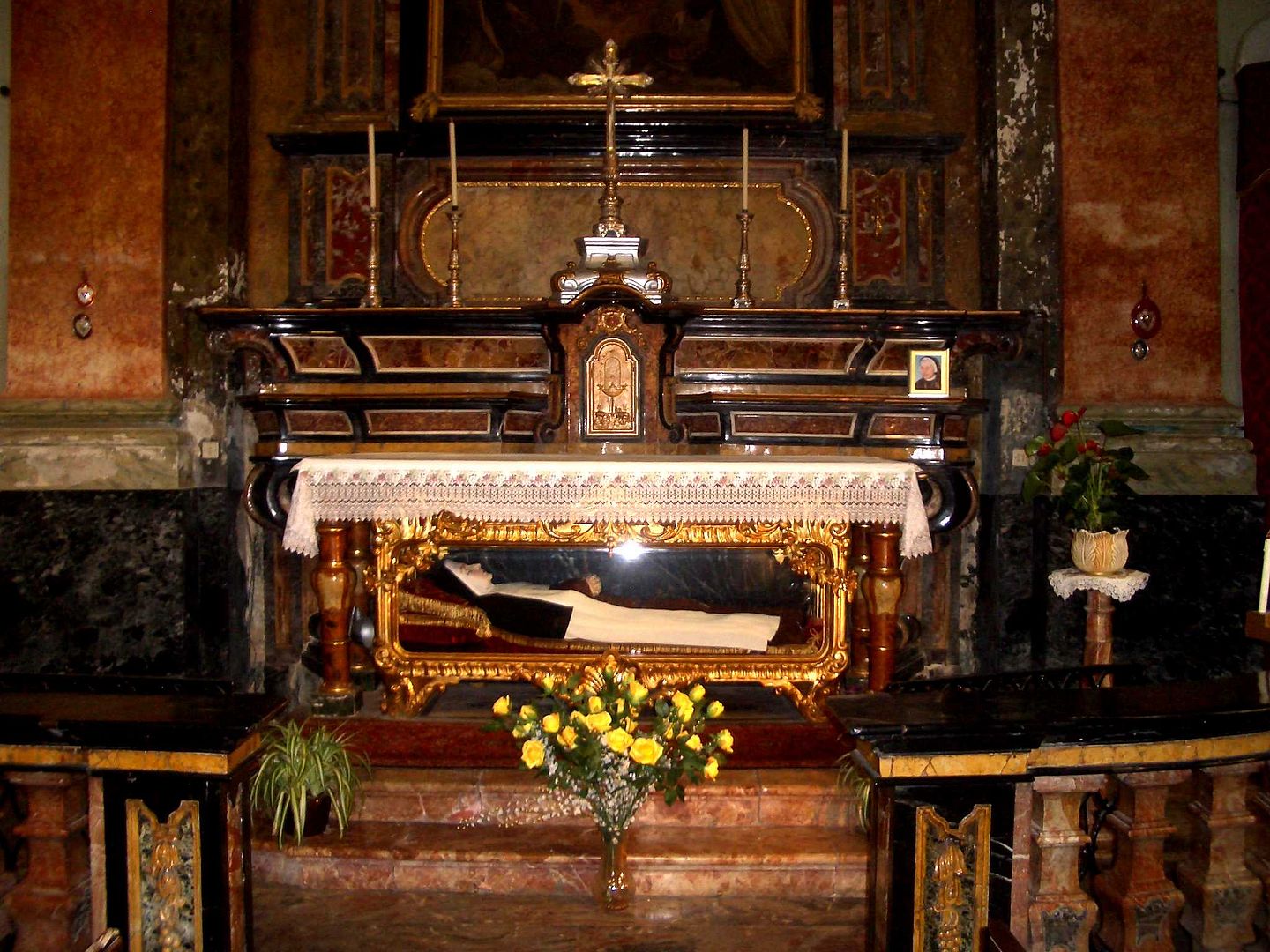 |
| Incorrupt Body of Beata Archangela Girlani |
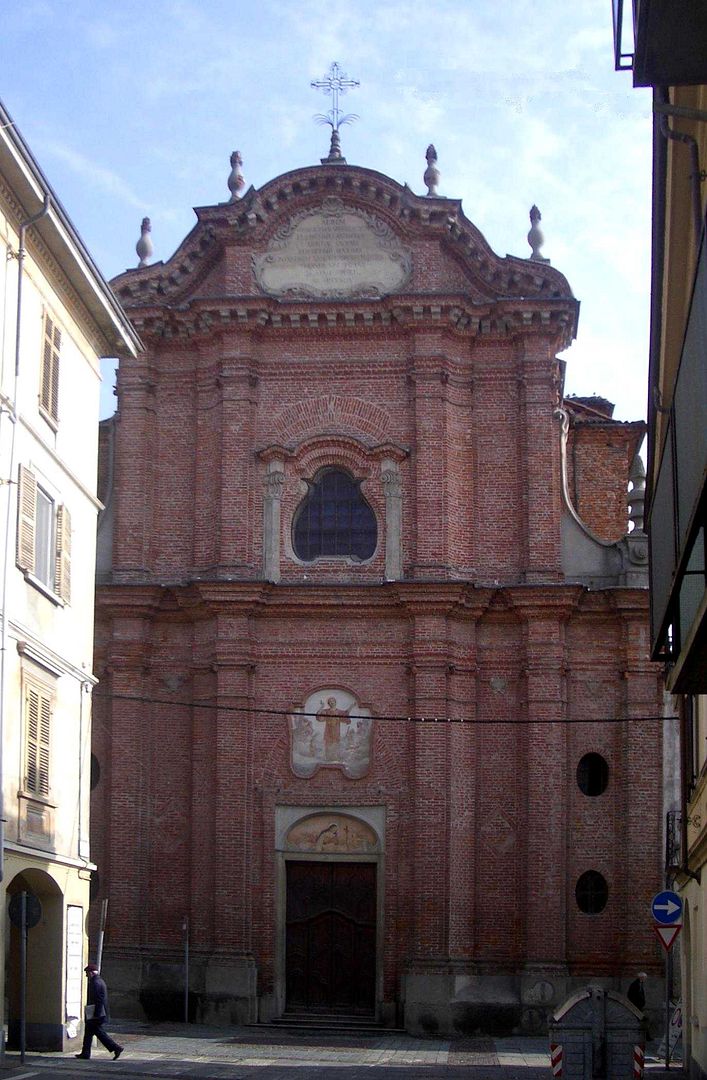 |
| Church of San Lorenzo in Trino |
Blessed Archangela’s life reminds us that we should remain vigilant in our daily lives, seeking out the plan of God, and following it to the best of our abilities. Blessed Archangela placed her life and destiny squarely in the hands of the Lord, and He led her to a place of deep connection, mysticism, ecstasy, and miracle-working. We pray for her same dedication and willingness to listen to the call of the Lord, that we might follow in her footsteps.
you gave the virgin Blessed Archangela Girlani
particular dedication to the mystery of the eternal Trinity.
Through her prayersmay we taste the delights of your glory
already here on earth,
and look upon you for ever in heaven.
We ask this through Christ, our Lord.
Amen.







